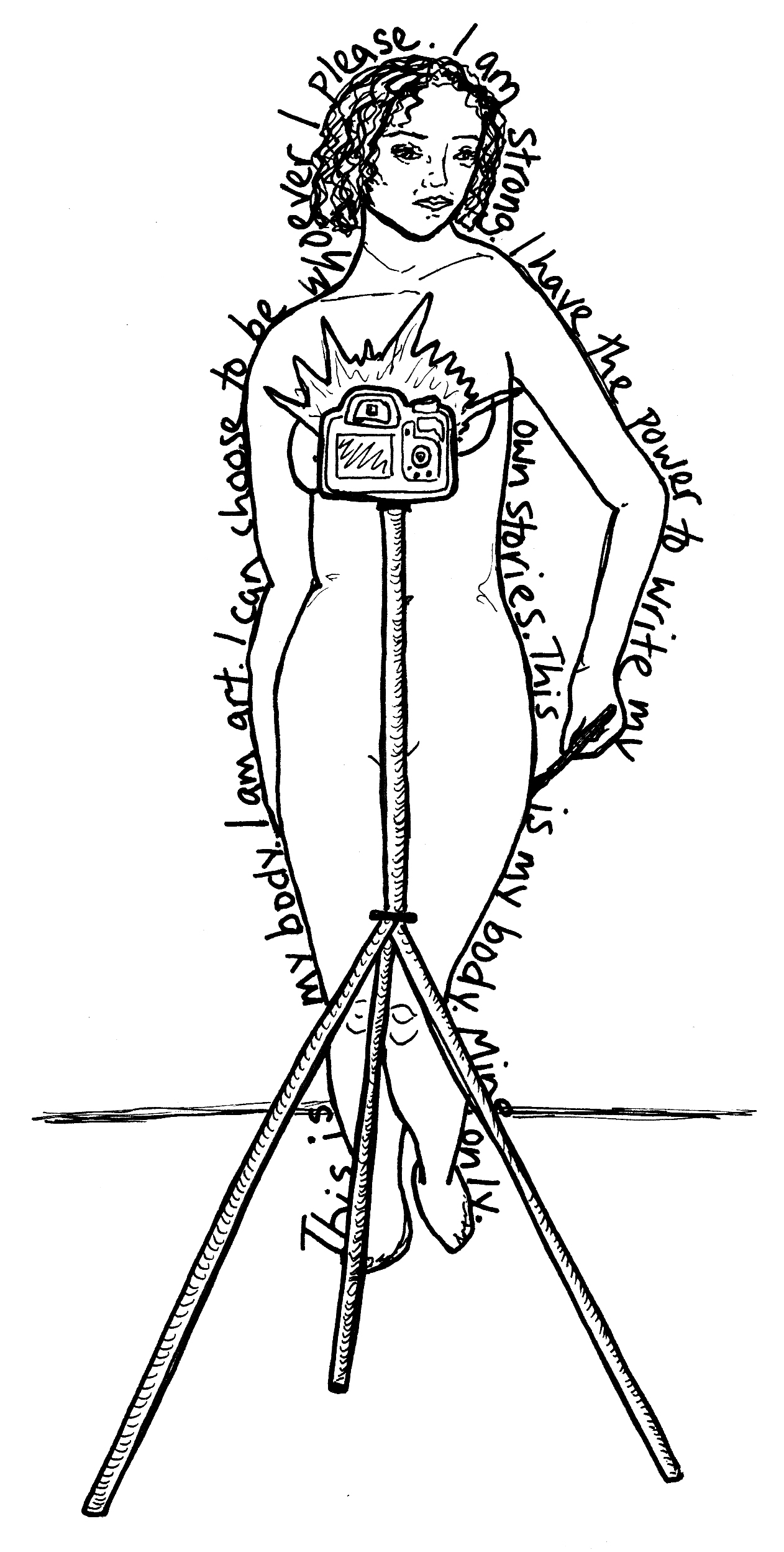Celebrating the self-representation of women and our bodies
February 9, 2018
 This
piece represents the opinion of the author
.
This
piece represents the opinion of the author
.
Author’s note: Although I use she/her/hers pronouns throughout this piece, we welcome non-binary students who have a connection to womanhood to participate in this photoshoot.
2018 marks the fourth iteration of the “Celebrating Women, Celebrating Bodies” photoshoot since its inception in 2012. Historically, this shoot has grounded itself in resisting the censorship and objectification of women’s bodies while celebrating the diversity of bodies on this campus. I, in addition to the rest of the student staff at the Center for Sexuality, Women and Gender, hope to carry these legacies into this year’s event. We will center the project on a particularly resonant theme at this cultural moment: women’s right to exercise agency over their stories and bodies.
Women’s bodies have historically been (and currently are) sites of dissent, struggle and dialogue. In the current political climate, women’s actions, thoughts, motivations and self-representations are harshly scrutinized and often obscured by narratives that place blame upon women. Additionally, the medium of photography has been problematically used in the past to categorize and objectify certain groups. Thus, there is massive creative potential to rethink and reclaim narratives surrounding women and their bodies through the act of photographic self-representation. Through this event we hope to open a space in which women of varying identities can choose how they wish to represent themselves as both the creators and subjects of art. This may include the choice to opt into or out of the shoot, the choice of whether and how to utilize nudity and to what degree or the choice to share the outcome of the experience or not.
We offer the option of nudity as another facet of choice and agency. Two years ago when I took part in the photoshoot, I expected my experience to be a celebration of self-love and body positivity. I was not as prepared to acknowledge and confront the shame that I felt around my body and its desirability in relation to other white bodies. I was and am uncomfortable with my discomfort. How does a feminist reconcile her deep body satisfaction insecurities? For me, the photoshoot and my choice to participate nude brought these vulnerabilities to the surface. Through this experience I looked my insecurities in the eye a little more honestly and rawly than I had before, and I’m grateful for that moment. This is one woman’s experience—my experience. One of the many moving aspects of this project is that it will include the experiences of many women.
Reflection was integral to my experience participating in the previous photoshoot. This year, we wish to create a space for exploration and reflection on what it means to be a woman, how we hold this identity in relation to others and our relationship with our bodies. We live in a time when images of our bodies are easily shared on social media and there are pressures to look, dress and act a certain way. By focusing this year’s photoshoot on agency and choice, we hope participants may create an experience that is meaningful to them and one in which there is no pressure to perform or display. The experience can be as personal as a participant wants it to be, as political or apolitical, as light-hearted or serious. Whatever the intention a participant has for this photoshoot, we welcome them.
The “Celebrating Women, Celebrating Bodies” photoshoot will take place Saturday, February 17 at 24 College Street. Those looking to participate should sign up by midnight on Sunday, February 11. If you have any questions or would like to sign up, please reach out to sgregers@bowdoin.edu.
Scout Gregerson is a member of the Class of 2018. Article was supported by Anu Asaolu, a member of the Class of 2019, Kendall Schutzer, a member of the Class of 2018 and Rebkah Tesfamariam, a member of the Class of 2018.
Comments
Before submitting a comment, please review our comment policy. Some key points from the policy:
- No hate speech, profanity, disrespectful or threatening comments.
- No personal attacks on reporters.
- Comments must be under 200 words.
- You are strongly encouraged to use a real name or identifier ("Class of '92").
- Any comments made with an email address that does not belong to you will get removed.


Very well written piece. Thoughtful and necessary in our political climate.